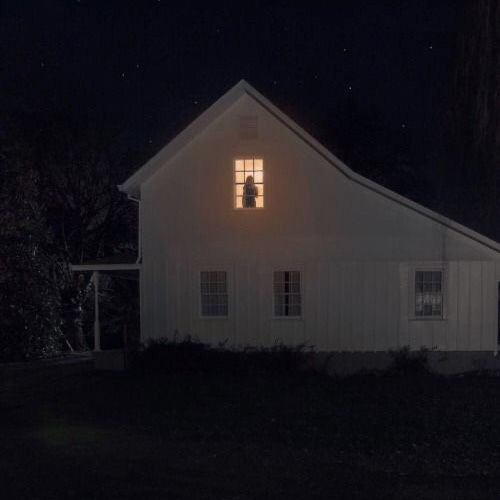The Weakerthans have been one of my favourite bands since I first listened to them with my best friend in Grade 7. We studied the lyrics and actually, abashedly, left nice notes on the construction site machines — an easy feat when our neighbourhoods were just being built in St. Andrews, and mostly covered in giant tire ruts and wood frames that would become homes:
We hope they treat you well. Hope you don’t work too hard. We hope you get to be happy sometimes.
We were both touched by the tenderness in My Favourite Chords.
John K. Sampson never tried to make Winnipeg prettier than it was. He belted “I hate Winnipeg” with the perfect balance of irony and affection. I knew when I first heard him that there was no way he meant it. You couldn’t write so many love letters to a place and really hate it. But of course love and hate aren’t very distant neighbours. Any love I’ve had for this place has always been mixed in — rolled like a jelly in sugar — with something else.
Bitterness. Resentment. Claustrophobia. Maybe that’s how home always feels.
Having left a place not once but twice, I know now that home is a much more ephemeral thing than it appears. I can look out a plane window and make out the Silver City theatre at Polo park. I can go to Twin Lake beach and remember the time I stepped on the edge of a shell and split open my big toe like a grim crescent smile. I cried and bled as my dad carried me to shore and my mom put a bandage on my foot.
But that doesn’t mean I’m back where I came from. I’ll never be back where I came from.
And equally as true is the fact that I will never not be from here. I can’t eradicate Winnipeg from my heart, or certain other parts of myself. When I was younger, listening to the Weakerthans allowed me to see this flawed place through a somewhat romantic lens, and that made it mean something. I strung meaning together at every opportunity.
It can be a cold and dry place, but I always found warmth in dark apartment living rooms and the stuffy tents at Festivale du Voyageur. In the summer, I allowed myself to be wowed by a panoramic sunset, and was genuinely content on the weekends my friends and I spent stumbling around Lester Beach. These things felt like an apology, if a somewhat pallid one.
You really think a few nice days make up for it, Winnipeg? For the unreliable buses and skin cracking frost and the endless months of February-March-April?
Being away and attempting to make homes in other places, I have the outside perspective I always assumed would be necessary to finding a true and reliable appreciation for Winnipeg.
At the end of the day, places are places.
What makes them different are the people, and the shape of the horizon. It seems that unless I spend 25 years somewhere else, Winnipeg will always be what comes to mind when I think of the word home. I can turn my nose up at it all I want. I can sit in my childhood bedroom and wish myself back in Villeray, and be absolutely insufferable about the lack of sidewalks and croissants in St. Andrews.
But this place and I belong to each other in a way that can’t be denied. If I could change it, I might.
Because no matter how familiar it is, too much has happened here. Too much has been said. Too many ghosts have my number. Too many unrealized promises hang over the air the way the wildfire smoke does, so thick and hazy that they colour the moon red.
When it comes to what you already know, there’s always a tendency to hold on. There’s a permissiveness that isn’t granted to new places and people. Once you break the seal on leaving, things become very pragmatic. No matter how much I love anything now — a street, an apartment, a person — I can always leave again. Nothing will ever sink its claws into me the way Winnipeg once did.
Staying out of love is commendable. Admirable, even, according to the Weakerthans:
Somewhere sympathy is more than just a way of leaving
Somewhere someone says I’m sorry, someone’s making plans to stay
But staying because there’s no trust in something more is a coward’s move. And any goodness you could have had will leak onto the floor and warp the boards.
The past is as ephemeral a thing as home. It’s no real reason to continue on, even if it’s the reason given, and one that always elicits an understanding nod. If I landed in this city today, I would never think to stay. Some things have an old, worn out claim on you. That can’t be the deciding factor.
This verse in This is a Fire Door, Never Leave Open sums it up better than this entire post:
I still hear trains at night when the wind is right
I remember everything, lick and thread this string
That will never mend you or tailor more
Than a memory of a kitchen floor
Or the fire-door that we kept propping openAnd I love this place, the enormous sky
And the faces, hands that I'm haunted by
So why can't I forgive these buildings?
These frameworks labeled home?
Why can’t I forgive these buildings, indeed. Probably because I expected so much more. Probably because this path I’m walking always has breaks in the trees that show me swaths of the life I could have had, but no longer have any way of touching.
Or maybe it’s just the winters, after all, and the doors that remain closed even when I stand outside them and shiver patiently.






This is phenomenal. I’m wordless
One great city it is!